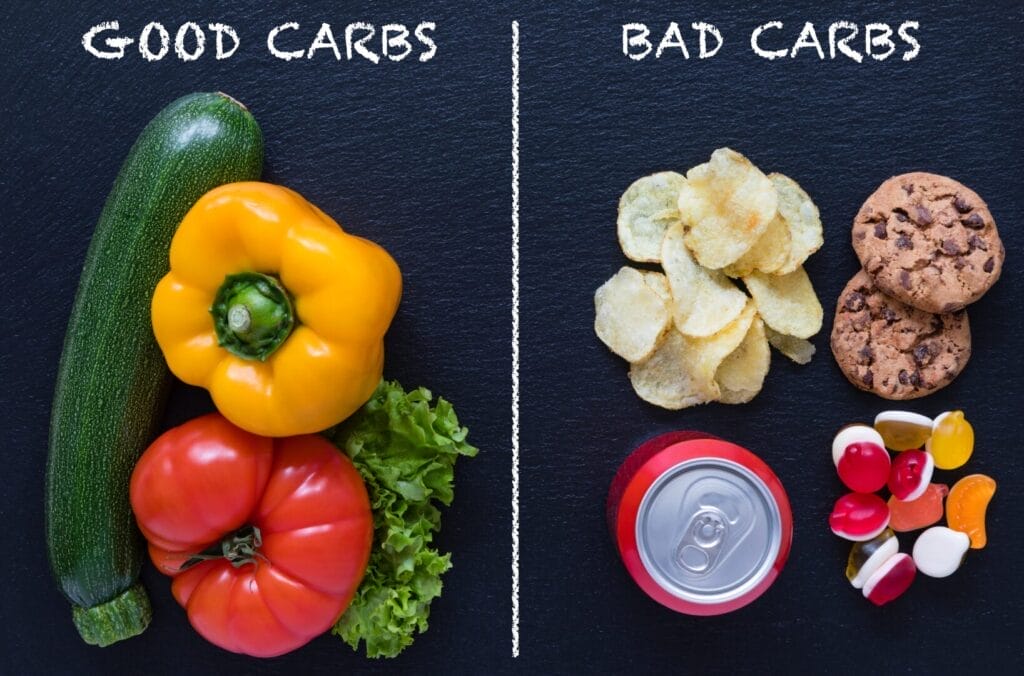Introduction
In the world of nutrition, carbohydrates often get a bad rap. However, not all carbs are created equal. Complex carbohydrates, in particular, play a crucial role in providing sustained energy, supporting overall health, and enhancing physical performance. This article delves into the science behind complex carbohydrates, their benefits, and how to incorporate them into your diet for optimal health and energy.
Table of Contents
What Are Complex Carbohydrates?
Complex carbohydrates are a category of carbohydrates that are composed of long chains of sugar molecules. These polysaccharides take longer to break down, providing a slow and steady release of glucose into the bloodstream. They are essential for maintaining energy levels and supporting bodily functions.

The Science Behind Complex Carbohydrates
Complex carbohydrates are structurally composed of three or more linked sugar molecules. Unlike simple carbohydrates, which are quickly digested and absorbed, complex carbohydrates undergo a more gradual digestive process, ensuring a steady energy supply. The enzymatic breakdown begins in the mouth with amylase and continues through the small intestine where nutrients are absorbed.
Sources of Complex Carbohydrates
Complex carbohydrates are predominantly found in whole, unprocessed foods. Major sources include:
- Whole Grains: Brown rice, quinoa, barley, oats
- Vegetables: Sweet potatoes, broccoli, spinach, carrots
- Legumes: Lentils, chickpeas, black beans
Benefits of Complex Carbohydrates
The consumption of complex carbohydrates offers numerous health benefits:
- Sustained Energy: They provide a long-lasting energy supply, preventing spikes and crashes in blood sugar levels.
- Satiety: High-fiber content promotes a feeling of fullness, aiding in weight management.
- Nutrient Density: They are rich in essential vitamins, minerals, and antioxidants.
Complex Carbohydrates vs. Simple Carbohydrates
While both types of carbohydrates provide energy, their impact on the body differs significantly. Simple carbohydrates, found in sugary snacks and refined foods, cause rapid blood sugar spikes and crashes. In contrast, complex carbohydrates ensure a gradual energy release, supporting sustained physical and mental performance. They can also be known as good carbs or bad carbs

How Complex Carbohydrates Provide Sustained Energy
The slow digestion and absorption process of complex carbohydrates helps maintain stable blood glucose levels. This steady release of energy supports prolonged physical activity and mental alertness, making them ideal for athletes and individuals with demanding lifestyles.
Role of Fiber in Complex Carbohydrates
Fiber is an indigestible component of complex carbohydrates that is crucial for digestive health. There are two types:
- Soluble Fiber: Dissolves in water, forming a gel-like substance that helps lower cholesterol and blood glucose levels.
- Insoluble Fiber: Adds bulk to stool, aiding in regular bowel movements and preventing constipation.
Learn more about the benefits of fiber in this blog post.
Glycemic Index and Complex Carbohydrates

The glycemic index (GI) measures how quickly foods raise blood sugar levels. Complex carbohydrates typically have a low to moderate GI, making them beneficial for sustained energy and blood sugar control. Incorporating low-GI foods can prevent energy slumps and reduce the risk of type 2 diabetes.
Incorporating Complex Carbohydrates into Your Diet
To maximize the benefits of complex carbohydrates, include a variety of sources in your meals:
- Breakfast: Oatmeal topped with fruits and nuts
- Lunch: Quinoa salad with vegetables and lean protein
- Dinner: Stir-fried brown rice with mixed vegetables and tofu
- Snacks: Hummus with whole-grain crackers or raw veggies
Common Myths About Carbohydrates
Many misconceptions surround carbohydrates, leading to dietary confusion. Common myths include:
- Myth: Carbs cause weight gain. Fact: Excess calories cause weight gain, not carbohydrates specifically.
- Myth: All carbs are bad. Fact: Complex carbohydrates are essential for health, unlike simple, refined carbs.
- Myth: Low-carb diets are the best for everyone. Fact: Individual nutritional needs vary; balanced diets are generally more sustainable.
The Role of Carbohydrates in Physical Performance
Carbohydrates are the primary energy source for physical activity. They fuel both aerobic and anaerobic exercises, enhance endurance, and aid in muscle recovery post-exercise. Athletes often rely on carbohydrate loading to maximize glycogen stores for prolonged energy during intense workouts.
Complex Carbohydrates and Weight Management
Including complex carbohydrates in your diet can aid in weight management by promoting satiety and reducing overall caloric intake. Their high fiber content slows digestion, helping to control hunger and prevent overeating.
Choosing the Right Carbohydrates for a Balanced Diet
For a balanced diet, prioritize whole, minimally processed carbohydrate sources. Combine a variety of grains, vegetables, and legumes to ensure adequate intake of essential nutrients and maintain energy levels throughout the day.
Impact of Complex Carbohydrates on Mental Health
Complex carbohydrates contribute to brain health by providing a steady supply of glucose, the brain’s primary energy source. They also support the production of serotonin, a neurotransmitter that regulates mood and promotes feelings of well-being.
Complex Carbohydrates for Different Life Stages
Nutritional needs vary across different life stages:
- Children: Require complex carbs for growth and energy
- Adults: Need them to maintain energy levels and overall health
- Elderly: Benefit from the fiber and nutrient density to support digestive health and prevent chronic diseases
Special Dietary Considerations
Certain health conditions require careful carbohydrate management:
- Diabetes: Focus on low-GI complex carbohydrates to control blood sugar levels
- Gluten Sensitivity: Choose gluten-free grains like quinoa and brown rice
- Allergies: Ensure variety to avoid allergens and meet nutritional needs
Recipes Featuring Complex Carbohydrates
Incorporate these recipes into your meal plan for delicious, nutrient-rich options:
- Breakfast: Sweet potato and black bean breakfast burrito
- Lunch: Lentil and vegetable stew
- Dinner: Baked salmon with a side of quinoa and steamed broccoli
Frequently Asked Questions about Carbs
What are the main sources of complex carbohydrates?
Whole grains, legumes, fruits, and vegetables are the main sources of complex carbohydrates.
How do complex carbohydrates benefit physical performance?
They provide sustained energy for exercise, enhance endurance, and support muscle recovery.
Are complex carbohydrates good for weight management?
Yes, they promote satiety and help control hunger, making it easier to manage weight.
What is the glycemic index, and why is it important?
The glycemic index measures how quickly foods raise blood sugar levels. Low-GI foods help maintain stable energy levels.
Can complex carbohydrates improve mental health?
Yes, they provide a steady supply of glucose to the brain and support serotonin production, enhancing mood and cognitive function.
How can I include more complex carbohydrates in my diet?
Incorporate whole grains, vegetables, and legumes into your meals. Use recipes that feature these ingredients for balanced nutrition.
Conclusion
Understanding complex carbohydrates is key to harnessing their benefits for sustained energy, overall health, and improved physical performance. By incorporating a variety of complex carbohydrates into your diet, you can enjoy steady energy levels, better weight management, and enhanced mental and physical well-being. Make informed choices and enjoy the nutritious, delicious benefits of complex carbohydrates.







